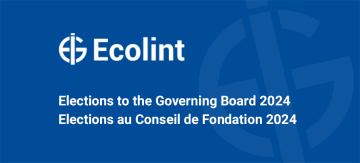Victoria WALKER

| Children at Ecolint | La Grande Boissière Middle School |
| Nationalities | British, Swiss |
| Languages spoken | English, French |
| Resident in the Geneva region since | 2008 |
Biographical Data
Victoria is a British-Swiss citizen who has been living in Geneva for over 15 years. She has a son in the middle school at La Grande Boissière. Drawing on her passion for the environment and building inclusive communities, she has recently volunteered as the sustainability coordinator for the LGB PTA.
Professionally, Victoria has worked at the Geneva Centre for Security Sector Governance, where she was a member of the executive board, with responsibilities for strategy, risk, international partner collaboration, and human rights accountability for organisational engagements and impacts. During her time with the organisation, she also held the position of senior governance advisor, where she supported governments and international organisations in accountability, system approaches, and inclusive engagement across Africa, Central America and the Caribbean, and the Balkans.
Previously, she worked in European Union peacebuilding and crisis management, with a focus on political analysis, human rights, and the rule of law. This included being a strategic advisor for planning a 2,500 strong international assistance mission in Kosovo, the head of country office in Albania, and supporting strategic decision-making to assist the peace process in Aceh, Indonesia. Victoria was also a commissioned officer in the British Army.
Victoria has a law degree, an MSc in International Development Management, and an MA in Social Sciences, with a focus on environmental policy and ecology. She recently started a certification course in AI Governance and is a committed life-long learner.
What does Ecolint mean to you?
Ecolint is first and foremost a community. It is a place that nurtures students talents, passions, and perspectives to be a positive impact for a fairer, more sustainable world. During the three years my son has been at the school I have seen this first hand, with exceptional teachers and support staff who really care about creating the best learning environment. It is also a place of innovation, and courage to take the lead.
What skills/expertise can you bring to the School?
- Governance & risk
- Strategy
- Knowledge and experience across the School’s three pillars of Peace, Inclusion, and Sustainability
Understanding that the Governing Board focuses on long-range and strategic issues, and not specific management, personnel, or curricular issues, how would you support the Ecolint Mission if you were elected to the Governing Board?
- Promote environmental sustainability by the School and increase collaboration with external stakeholders (e.g. 2050Today initiative).
- Support and reinforce the Foundation’s commitment to inclusion, and its global lead in this role.
- Reinforce principles of good governance, ensuring goals are clear, communicated, and performance tracked and reported transparently.
- Critical analysis of key strategic factors influencing the future of education. Digital transformation, equity and inclusion, and what it means to be a global citizen will all evolve. Students may have careers that may not yet exist.
- Support AI governance and help the School’s AI and GenAI policy to evolve with the exponential rise in its use and applications, and the growing challenges of hidden biases.
The Ecolint Governing Board is the key governance body of the International School. What is your understanding of the tasks you are called upon to perform in this context? And, what particular skills and experience would you draw on to fulfil this role?
As a prospective member of the Ecolint Governing Board, I understand that my role would be to provide strategic direction, oversee policy development, manage risk, and ensure the institution's integrity and financial sustainability. It involves shaping the school’s vision, reinforcing the School’s culture of excellence and inclusivity, and navigating challenges in the evolving landscape of international education, in a time of significant geopolitical, environmental, and technological shifts.
I bring over two decades of experience of strategy, risk management, and governance, including seven years in the executive and decision-making body of a large non-profit organisation. I am currently working on a project to design a governance and risk management architecture for safeguarding and due diligence. Overall, my career in international development, and experience of leading diverse, multicultural teams positions me well to understand how these skills apply in an international education setting.
A further area is building strategic partnerships for the School and leveraging my networks and connections. I have previously developed a dynamic international partnership platform with 23 donor governments and multilateral organisations. In addition, I am a member of several local and international networks for sustainability, the Sustainable Development Goals and people-centred security, and Artificial Intelligence (with a focus on governance).
In addition to formal leadership training throughout my career, I have recently enhanced my knowledge and skills in organisational psychology and undertaken Charity Trustee Training.
Fair and equitable access to an education of excellence such as that of the International School of Geneva is at the heart of the objectives on which the Governing Board must focus. What might your thoughts be on this matter at this time? Do you have any particular expertise that you could draw upon in such societal matters?
Addressing fair and equitable access to an education of excellence underpins the achievement of Sustainable Development Goal 4: Ensure equal access to quality education for all and promote lifelong learning opportunities. It requires recognition of Ecolint’s current achievements and a forward-looking strategy to deepen and expand these further.
Ecolint should continue to innovate its scholarship and financial aid frameworks to ensure that more students from varied backgrounds can benefit from its offerings. Areas to be explored could include targeted fundraising campaigns, partnerships with philanthropic organisations, sliding-scale fees, and furthering discussions with cantonal authorities on support for those with additional challenges for whom Ecolint provides a unique opportunity to flourish in mainstream education.
Increased involvement with local schools can enrich educational experiences, broaden perspectives, and foster a sense of community. This could involve joint educational projects, programmes to bring together teachers to share approaches, methods, and experience, and joint professional development workshops.
Additionally, integrating digital learning tools and platforms can make high-quality learning experiences available beyond the physical campus, opening up the possibility of strengthening partnerships with local schools and engaging with more disadvantaged schools in other countries to provide them access to resources that might otherwise not be available.
Ecolint must also ensure the responsible use of resources so that access remains available to future generations. The School can increase its focus on having a positive, regenerative, environmental impact.
I have worked extensively on equitable access to services and people-centred approaches to tackling societal problems, and would bring this skillset to the Board.
Ecolint aims to ensure a framework that serves to provide a distinctive high quality international education through which all students are helped to develop their abilities to the highest level of the potential. In your opinion, what are the different elements that are critical to this framework (buildings, interior and exterior spaces; technical supports and equipment; management team, teachers, and administrative staff; or others...)?
- Infrastructure: Incorporates modern, secure buildings with adaptive learning spaces, smart classrooms equipped with adaptive technologies and flexible furniture to support various teaching methods, including collaborative and individual learning spaces, and outdoor areas for physical and environmental / biodiversity activities.
- Technical Support and Equipment: Integration of advanced technology in the curriculum to enhance learning experiences, including smart classrooms, digital libraries, and online learning platforms. Integration of AI within a strong governance framework; well-equipped science and art facilities, prioritising accessibility and inclusivity.
- Human Resources: visionary leadership, diverse and skilled teachers committed to ongoing development, and efficient administrative staff ensuring operational excellence and student support.
- Curriculum and Pedagogy: Offers an internationally recognised curriculum that is culturally inclusive, employing innovative teaching methods to enhance critical thinking, creativity, and global citizenship.
- Partnerships and Community Engagement: Active involvement of parents through digital platforms, opportunities for engagement, and regular communication, fostering a strong home-school connection. Cultivates global networks with educational institutions for expanded learning opportunities.
- Well-being and Inclusivity: Promotes comprehensive mental and emotional health support and practices inclusive education for equal access and opportunities for every student.
- Sustainability: Integrates sustainability and environmental stewardship into the curriculum, encouraging conservation and responsible citizenship.
Ecolint embraces diversity and honours the unique voice and personal experience of all members of the community. What do you think of this statement in terms of your experience as a member of the community? In your opinion what should be the role of the Governing Board in strengthening inclusion of diversity in the Foundation?
My involvement as a parent and an active member of the PTA, coupled with my interactions with teachers, support staff, and initiatives focused on additional learning support, solidifies my conviction that Ecolint champions diversity and inclusion. However, the Governing Board should explore avenues to engage all community members in a deeper understanding of what this entail, cultivating an appreciation for diversity as a societal norm and developing metrics for its measurement.
Addressing the subtle challenges to inclusion, particularly those that emerge as students grow and their social circles become more defined, is crucial.
Viewing diversity as a strength means creating opportunities for individuals with different perspectives or alternative thinking styles to lead mainstream projects—not only those directly linked to diversity or inclusion. Representatives from ESP and Learning Support should be included in Governing Board discussions, if not already through the Student Council.
The rise of AI presents a unique opportunity for the Foundation to confront non-representation and biases inherent in data and algorithms. Engaging students in discussions on AI ethics and in developing AI systems that embody these values can pave the way for more inclusive technological advancements.
Moreover, the Board's support for diversity in recruitment practices ensures that hiring decisions reflect a commitment to providing equitable opportunities for candidates from diverse backgrounds. By fostering an environment where diversity is not only recognised but celebrated and integrated into every facet of the School's operations, the Governing Board can strengthen Ecolint's position as a leader in diversity and inclusion.
Are you aware of the financial information related to the Foundation? While efforts have been made, what else can be done in your opinion, to make the Foundation more sustainable in the long term continuing to ensure affordable fee structures while providing qualitative inclusive education in an effort to make global citizens and optimum capital development efforts?
The Foundation has taken significant steps towards securing its financial future while upholding its commitment to delivering high-quality, inclusive education. The strategy for achieving long-term financial sustainability includes the critical evaluation and revision of financial assumptions and policies. A key element of the strategy is the adjustment of the existing financial model to ensure that revenue growth aligns with expense growth.
The decision to freeze tuition fee increases, alongside reductions for reception and discounts for ESP students with siblings at the school, marks a significant advancement. Additionally, the establishment of an endowment fund presents a sustainable approach to financial stability, with the Ecolint Development and Alumni Relations Office spearheading fundraising efforts.
To bolster financial sustainability, the Foundation could broaden its revenue generation strategies beyond conventional avenues. Enhancing fundraising activities to appeal to alumni, corporations, and philanthropic entities, and leveraging digital platforms for wider campaign outreach could prove invaluable. Additionally, exploring new grants and support for sustainability projects aligns with environmental objectives and potentially opens new funding sources.
Operational efficiency improvements, driven by technology and innovation, could yield significant benefits.
Community engagement, through volunteering and partnerships, offers reciprocal advantages. These community engagement initiatives can offer mutual benefits, including enhancing the educational experience for students and providing businesses with opportunities for social responsibility initiatives.
While commendable efforts have been made towards financial sustainability and maintaining affordable fees, expanding revenue sources, operational efficiencies, and community engagement are essential for enhancing long-term stability.
